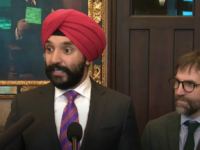Net neutrality has long stood as a foundational Internet policy principle for the current Liberal government. Prime Minister Justin Trudeau has regularly spoken in support of net neutrality, describing it as “essential to keep the freedom associated with the Internet alive” and claiming that he would defend net neutrality even as the U.S. backtracked by repealing net neutrality regulations:
“The idea of throttling certain sites or charging extra for certain services just does not make sense and if we’re going to continue to ensure that … digital technology and use of the internet is the lever to create economic growth and opportunities for citizens right across this country, we need to continue to defend net neutrality and I will.”
The government’s support for net neutrality has been signalled in many ways: it passed a resolution in support of net neutrality; Innovation, Science and Industry Minister Navdeep Bains affirmed “we support an open Internet where Canadians have the ability to access the content of their choice in accordance with Canadian laws”; and former Heritage Minister Melanie Joly used her speech on Canadian digital cultural policy in 2017 to note that “we stand by the principle of net neutrality.”
Yet Canadian Heritage Minister Steven Guilbeault is promising a series of reforms that will undermine a core principle of net neutrality and Bains is seemingly content to remain silent.











